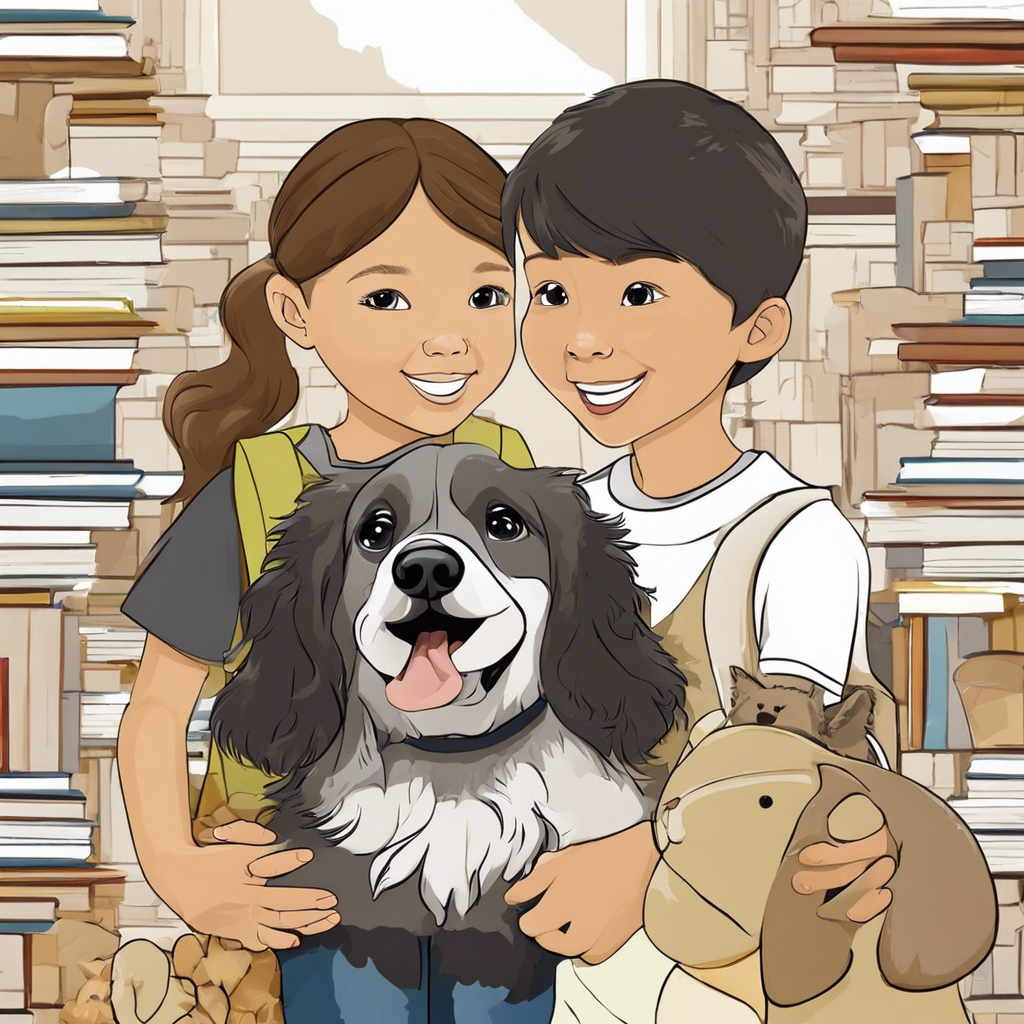Exploring the impact of pets on children’s academic performance and overall development.
Having a pet can bring joy and companionship to any family, but did you know it could also have a significant impact on your child’s academic success? Research suggests that pet ownership may contribute to improved academic achievement in children. This article delves into the fascinating relationship between pets and children’s learning abilities, uncovering the potential benefits and exploring the factors that make this connection so intriguing.
The Bond Between Children and Their Pets
The relationship between children and their furry friends is unique and can have a profound impact on their overall development. Here’s how this bond can influence their academic journey.
Emotional Support and Stress Relief
Pets offer **unconditional love** and **emotional support**, which can be particularly beneficial for children facing academic challenges. A recent study by the American Psychological Association highlights that students who interact with therapy dogs before exams experience reduced stress levels, leading to better performance. This finding emphasizes how pets can create a calming environment for children, promoting focus and concentration.
Responsibility and Time Management
Caring for pets teaches children about responsibility, a skill that can transfer to their academic life. According to the journal Frontiers in Psychology, children who care for pets learn to manage their time effectively, ensuring they complete homework and study alongside their pet care duties. This sense of responsibility and time management can positively influence their academic performance.
The Cognitive Benefits
Pet ownership can stimulate children’s cognitive development in various ways, ultimately enhancing their academic abilities.
Enhanced Reading Skills
Reading to pets is a common practice that can significantly improve children’s reading abilities. A study published in The Reading Teacher found that children who read aloud to dogs showed greater reading improvement than those who read to adults. This may be because pets provide a non-judgmental audience, encouraging children to practice their reading skills without fear of criticism.
Improved Social Skills
Pets can also serve as social catalysts, helping children develop essential social skills. When children interact with their pets, they often engage in conversations, nurturing their communication abilities. This can lead to increased confidence in social situations, including classroom interactions, according to a report by the American Psychological Association.
Unleashing the Benefits:
- Pets provide a sense of security and comfort, allowing children to feel emotionally secure.
- Playing with pets promotes creativity and problem-solving skills.
- Children with pets may develop stronger empathy and compassion.
Frequently Asked Questions
Can pets help children with learning disabilities?
Yes, pets can be especially beneficial for children with learning disabilities. The emotional support and non-judgmental nature of pets can create a safe environment for these children to learn and grow. Therapy dogs, in particular, have been shown to improve the reading skills of children with dyslexia.
How do pets impact children’s physical health?
Pet ownership encourages physical activity, as children engage in play and exercise with their pets. This increased physical activity can lead to better overall health, reduced stress, and improved cognitive function.
Do all types of pets provide the same benefits?
While all pets offer some level of companionship and support, the extent of their impact may vary. Dogs and cats, being more interactive, often provide the most significant benefits due to their ability to form deep bonds with children. However, even smaller pets like fish can teach children about responsibility and routine.
Conclusion
Pets are not just adorable companions but also powerful influencers in a child’s academic journey. The emotional support, sense of responsibility, and cognitive stimulation they provide can significantly contribute to a child’s success in school and beyond. As more research highlights the bond between children and their pets, it’s clear that these furry friends are more than just playmates; they are partners in learning and development.
**Suggested External Links:**
1. American Psychological Association: The Benefits of Human-Animal Interaction
2. The Reading Teacher: Reading to Rover: The Benefits of Children Reading to Dogs
3. Frontiers in Psychology: The Impact of Pet Ownership on Children’s Social-Emotional Development
